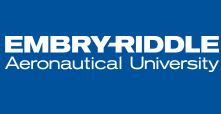
Volume
18
Issue
3
Abstract
This was a paper showing the utility of the use of case study methodology as a means to enhance student learning in aviation education. A short discussion of the case study methodology based on R. Yin's case study approach was presented to give the reader background knowledge from which to perform a case study. Through the case study methodology, the aviation instructor can identify key variables of airline management, define and present these variables to the students in the classroom, and then have the students perform a case study investigation of their selected airline over the course of a semester. Day-to-day operational variables of aviation organizations can be investigated from several sources included documentation, archival records, direct observation, participant observation, and physical artifacts. Use of these data sources will ensure correlation of collected data among multiple sources and increased reproducibility of collected data thus strengthening the validity of the instructor's and students' study. A sample case study is presented with its associated selected, identified and defined variables. By tasking the students to perform the sequential parts of a case study in multiple parts over the course of a semester, each student will have a complete, well investigated case study of an airline of their choice at the end of the course. A sample case study of Aloha airlines is presented as an example of a completed case study on an airline. Recommendations for incorporating a case study into the curriculum of an airline management course are presented as a sample of the use of this teaching technique in the aviation classroom.
Scholarly Commons Citation
Johnson, J. C.
(2009).
Case Study Methodology in the Aviation Industry.
Journal of Aviation/Aerospace Education & Research, 18(3).
DOI: https://doi.org/10.15394/jaaer.2009.1427

